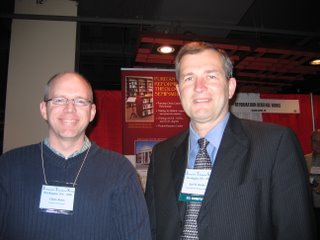For Puritans such as Thomas Goodwin and John Owen, the promises of God in the Old and New Testaments were cross-shaped and Christ-centered. In other words, a bare promise is meaningless. Goodwin puts the matter provocatively,
The promise is but the casket, and Christ is the jewel in it; the promise but the field, and Christ the pearl hid in it, and to be chiefly looked at. The promises are the means by which you believe, not the things on which you are to rest. And so, although you are to look at the forgiveness as held forth in the promises, yet you are to believe on the Christ in that promise to obtain this forgiveness...Now this is the tenure of all promises; they all hold on Christ, in whom they are yea and amen; and you must take them to him...to rest on the bare promise, or to look to the benefit promised, without eyeing Christ, is not an evangelical, but a Jewish faith, even such as the formalists among the Jews had, who without the Messiah closed with promises, and rested in types to cleanse them, without looking unto Christ the end of them, and as propounded to their faith in them (Goodwin, Works, 4:14-15).
Goodwin and Owen believed that the promises in Scripture originated in the divine counsels between the Father and the Son before the foundation of the world (i.e. Covenant of Redemption). According to Owen, in the person of Christ "were laid all the foundations of the counsels of God for the sanctification and salvation of the church" so that "from the giving of that promise [in Genesis 3:15] the faith of the whole church was fixed on him whom God would send in our nature, to redeem and save them" (Owen,
Works, 1:64, 101). Likewise Goodwin states, "all the promises in the word are but copies of God's promises made to Christ for us from everlasting" (Goodwin,
Works, 5:139). To use the latest theological buzzwords, the divine-eternal metanarrative interlocks with the redemptive-historical narrative in the incarnate Christ and finds its consummate fulfillment.
In short, it is not the promise of redemption
per se which is foundation of the church’s hope and consolation but the fulfillment of that promise in the person, office, and work of the Messiah.
 Thanks, John, for the link to the summary of my paper at the A-Team blog. I had the pleasure of meeting Roger Overton at the conference, but I didn't know he'd be posting anything about the paper. I'm humbled.
Thanks, John, for the link to the summary of my paper at the A-Team blog. I had the pleasure of meeting Roger Overton at the conference, but I didn't know he'd be posting anything about the paper. I'm humbled. dialogue. Exploring Protestant Traditions will be a great resource for church historians and students of theology who want to be able to compare and contrast the doctrinal distinctives of these traditions without having to sift through the confessional polemic that characterizes more one-sided surveys.
dialogue. Exploring Protestant Traditions will be a great resource for church historians and students of theology who want to be able to compare and contrast the doctrinal distinctives of these traditions without having to sift through the confessional polemic that characterizes more one-sided surveys.












